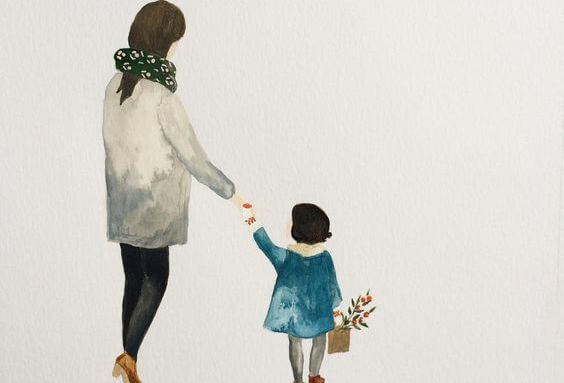Treat Your Children How You'd Like to Be Treated and You Won’t Go Wrong

Treat your children as you would like to be treated yourself. Snuff out their fears, give a name to those emotions that they do not know how to express, dedicate time to them, let their dreams take off, and make them feel like what they are: the most precious people in your world.
It is curious how many mothers and fathers nowadays look at raising children with a bit of fear. They read education manuals, get taught the latest theories, and look for answers to every problem on the Internet or from those friends – parents or not – who have risen above the rest as veritable gurus in all subjects of child raising. Those parents forget in some way to listen to something much more valuable than all of that: their natural instinct.
A child does not want to be yelled at and does not understand reproaches; your child deserves to be treated with the art of listening, patience, and the grandeur of affection, because children are not there to be “dominated”; they are there to be loved.
A mother’s instinct or a father’s natural ability to intuitively know the needs of their own children is doubtlessly the best strategy when it comes to educating them. Children come into the world with innate kindness, so they deserve to be treated with respect.
We invite you to reflect on this.

A child must be treated with affection and without fear
There are mothers and fathers who are afraid to fail in their role as parents. They think that it they are failures if they don’t give them the best birthday party, get them a place in the best schools, or buy them the same brand-name clothes that their friends wear at school. They aspire, in some way, to offer their children what they themselves never had.
It is clear that everyone is free when it comes to choosing how to educate a child, but we often forget what children are like and everything that happens in their heads. We hang onto the thought of everything that we have to offer them without first finding out what they really need: us.
- A child is not a miniature adult; it is a person who needs to understand the world through you and with your heart.
- A child will always act out of needs and not manipulation or malice like adults do. We have to be intuitive to those demands.
- Above all else, a child must be treated with affection. Our children do not really need brand-name clothes or electronic toys that they can play with alone. They need your time, your example, your good night hugs, and your hand to hold when they cross the street.
Self-regulated upbringing: understanding and accompanying
Self-regulated upbringing is fed directly by the attachment theories formulated by psychiatrist Wilhelm Reich. They praise a series of key concepts through which to connect much better with childhood, with their times, with their needs.
The interesting thing about this focus is that self-regulation is understood as a synonym for life, for the need to make the first contact with our own personal complexity in order to understand that the child, too, has their own needs, their own conflicts sometimes created by a society that does not understand childhood or children.

Keys to self-regulated upbringing
Self-regulated upbringing tells us that a child who has been treated with respect during their childhood and who has also seen how respectful their parents were with those around them will be a respectful adult.
That is all fine and good, but… how do we achieve such a thing? How does self-regulated upbringing teach us to give the world happy adults?
- A child must feel understood and accompanied especially in difficult times. If frustration shows up, that child will stop feeling adapted and integrated to the world.
- We must educate with healthy attachment based on love and closeness. In this way, that child will gradually feel sure enough to direct their footsteps towards independence.
- A child’s voice must be heard at all times, because they, too, have to be taken into consideration when they laugh and when they cry, when they ask or when they suggest things.
- Self-regulated upbringing also tells us about times, about not starting intellectual education until the age of 7 so as to provide an initial discovery period through fun and games.

- Interacting with their surroundings through their five senses and their relationships with people their own age through joy also offers us an interesting way to favor their psychosocial development.
Notwithstanding, and whatever the focus is that we choose for raising our children, we must not forget something so simple as treating them with that certain and unfailing magical formula: love.
This text is provided for informational purposes only and does not replace consultation with a professional. If in doubt, consult your specialist.








